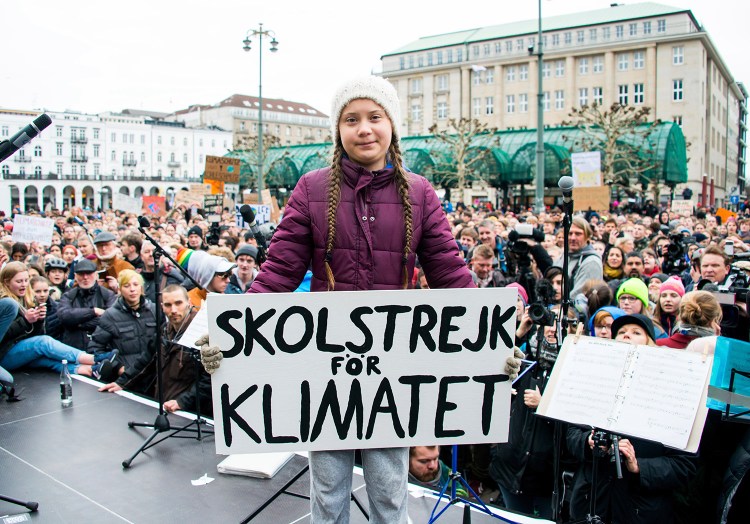One of the greatest roadblocks to addressing climate change is the belief that someone else will fix this. Our indifference to and complacency about taking action are about to be challenged by those who will suffer the greatest from inaction – our youth. People under 25 make up more than half of the global population, yet they’re left out of the local and global decision-making process. That is about to change.
YOUTH CLIMATE STRIKE
On Friday, students from 44 communities in the U.S. – including Bar Harbor, Brunswick, Lewiston and Portland – and over 50 countries on every continent will be going on strike because, in the words of Youth Climate Strike’s mission statement, the “decades of inaction have left us with only 11 years to avoid the worst effects of climate change.” Global carbon emissions must be slashed in half by 2030 to avert planetary disaster, according to the 2018 U.N. Intergovernmental Panel on Climate Change report.
This massive, international, youth-led mobilization will demand action, accurately declaring: “We are striking because our world leaders have yet to acknowledge, prioritize or properly address our climate crisis.” Their mission is a fair and just transition to a 100 percent renewable economy, and for an end to the creation of fossil fuel infrastructure. They believe the climate crisis should be declared a national emergency because we are running out of time
The movement originated with Swedish teenager Greta Thunberg, who has quickly risen to international hero status on social media for her straight-to-the-point truth-telling to politicians and CEOs about the “unimaginable amounts of money” made by those sacrificing their future. The originator of an idea whose time has come, she has inspired youth coalitions, leaders and activists to take to the streets to protest their governments’ failure to pursue climate solutions that match the urgency required. Their open letter states, “We can and will stop this madness.”
A YOUTH-DRIVEN TRIAL
National attention is building for what could be the trial of our lifetimes, with consequences reaching far beyond us to future generations. The young plaintiffs, aged 11 to 22, filed a lawsuit, Juliana v. United States, alleging that the U.S. government has failed to protect them from climate change. The suit states: “The constitutional rights of life, liberty, and property of the 21 plaintiffs are being denied by the government for continuing to promote fossil fuels, despite knowing their link to climate change and its impact.”
The Trump administration has attempted to silence the voices of the youth and keep science out of the courtroom. They have lost five appeals to stop the case, two in front of the U.S. Supreme Court. The case is currently before the 9th U.S. Circuit Court of Appeals in Oregon on yet another motion to dismiss, set for June. Denying two earlier motions to dismiss, U.S. District Judge Ann Aiken wrote in November 2016: “Exercising my ‘reasoned judgment,’ I have no doubt that the right to a climate system capable of sustaining human life is fundamental to a free and ordered society.”
About the case, environmental lawyer and climate policy expert James Gustave Speth concluded: “The whole strategy of the government now for three years has been to prevent the trial from happening. I think they don’t want the spotlight put on all this information or on the threats to the well-being of this new generation, which is going to absorb all the shock of our neglect. It is important that the lawsuit is brought by young people, because it really makes everyone face the reality of the challenge.”
The above groups, and others, point to a trend – our youth are quickly becoming outspoken, climate savvy and impatient regarding inaction by government policymakers. Millennials will be the largest group of eligible voters in the U.S. in the 2020 election.
Send questions/comments to the editors.


